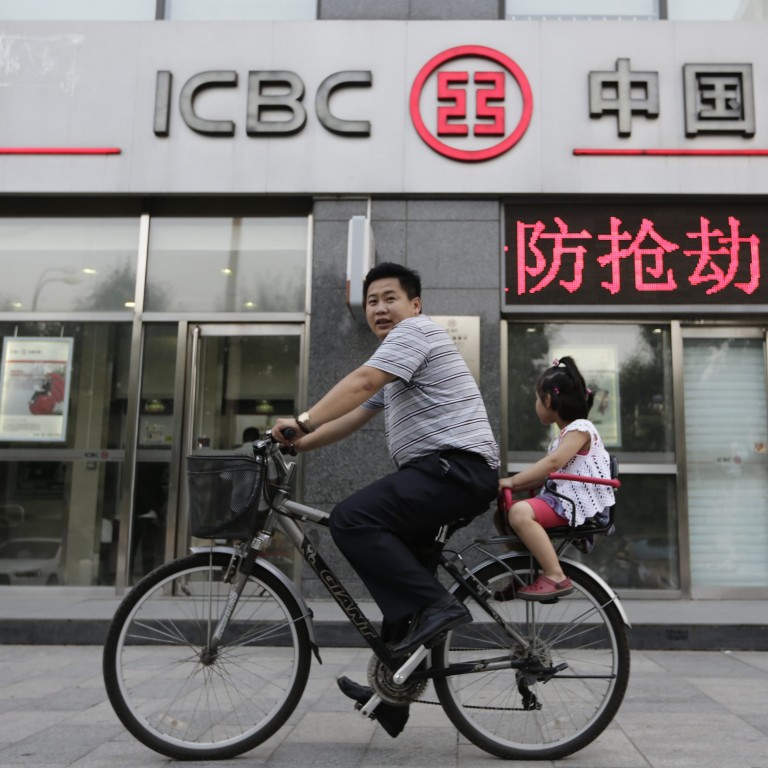
ICBC a laughing stock after inept effort to cook up orders
The chain of events involving Powerlong's initial public offering was 'shockingly crude' and a model example of how easy it is to get caught
For an investment bank, getting caught by the regulator is bad enough, but what's even worse is being laughed at by your peers.
The performance of Industrial and Commercial Bank of China in the cooking up of share orders for the public offering of Powerlong Real Estate Holding has prompted such laughter.
After all, cooking up IPO orders is not news. But ICBC is one of the few to be caught for not only turning a blind eye to that but also facilitating it with its own money.
Last week, the Securities and Futures Commission fined its investment bank and brokerage arms in Hong Kong a total of HK$25 million.
"The arrangement was shockingly crude," said one veteran investment banker.
As with every strange event in China, there is always a good reason. Before going into that, let's take a look at what bankers mean by "crude".
Powerlong, a Fujian developer, was about to raise HK$4 billion through an IPO in 2009. The mainland had yet to recover from the 2008 crisis and moves to cool property prices. It was a tough sale.
Whatever the return, it was a big loss for the bank [ICBC], at least reputation-wise
Before the offering, Powerlong referred some "friends and family members" to the investment bank, which made arrangements with its securities arm to open accounts to subscribe for the placement shares, the SFC said.
The SFC has located phone records between the brokerage and the "placees" that led to suspicion that some placees were financially dependent on Powerlong's management and controlling shareholders.
(According to the pros, you should never use friends and family members, who normally don't have a long enough trading record, to be professional and independent investors. Professional nominees are normally lined up more than a month before the IPO, providing not only a long trading record but also numerous offshore companies to play with. Their fees can be as high as 25 per cent.)
Demand was sluggish. Powerlong subsequently cut its price by 44 per cent to HK$2.75. A senior member of Powerlong management told an ICBC investment banker that subscription would be increased via four accounts so that the listing would not fall through, according to the SFC.
(The pros said it was a grossly wrong estimation of the market. You don't take chances. If you are going to do an IPO and plan to cook up orders, you must make sure the numbers add up before launching it.)
Orders from the four accounts surged tenfold. Various Powerlong personnel liaised with the investment bank on the order increase and requested that ICBC's brokerage arm provide them with margin financing of 50 per cent.
(The pros said such communication needed to be discreet. It's certainly not done over the office phone.)
The result is the four placees ended up with shares that far exceeded their declared net worth, up to 127 times in some cases. Margin finance as high as 50 per cent was provided, without approval from the broker's senior management.
This triggered massive debit balances. But no prior approval for limit excess was obtained when the shares were booked into the placees' account.
(The pros said excessive margin finance and debit balance only attract the regulator's attention. That's where professional nominees with reasonable financial depth come into play.)
A managing director of the investment bank had suspicions and informed his supervisor. Nothing happened. The managing director was subsequently sacked.
When the payment time came, no one ever questioned the funding source of the placees. In fact, in order to circumvent internal control, staff of the broker advised the placees to pay with cash or cashier's orders. Therefore, the identity of the one who actually paid for the stocks could not be traced.
(The pros said payment by cash or cashier smells bad. Money is normally parked in the bank account of the professional nominee in advance. The controlling shareholder of the issuer secures control over the shares via a trustee account, designated trader or the sale of control over the offshore company that holds an account. In some cases, the professional nominee will actually own those shares and absorb the loss or gain in return for a fee. That will give the subscription a fully independent look.)
ICBC went out of its ways to make sure the IPO could be completed. The question is why. Powerlong's prospectus says an IPO was the only way that the bank could recoup its HK$500 million loan from the developer.
Ten days before the IPO, ICBC loaned Powerlong the money at 5.5 per cent to repay an earlier borrowing from Macquarie and some hedge funds that were charging 25 per cent, the prospectus says.
Like most developers in China, Powerlong borrowed at a top price to stock up with projects and land bank so that it was fit for listing. Why ICBC decided to bail out Powerlong from the expensive deal is anybody's guess. Whatever the return, it was a big loss for the bank, at least reputation-wise.

